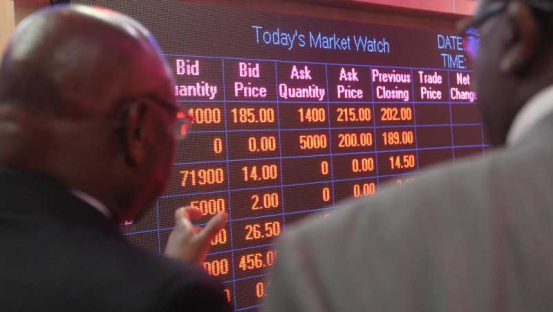×
The Standard e-Paper
Kenya’s Boldest Voice

Panic sells by foreign investors of up to Sh1.4 billion triggered a market crash on Friday with huge sales at Safaricom, Equity and East Africa Breweries Limited. This caused a dip in share prices across several counters.
Trading at the Nairobi Securities Exchange went off for 30 minutes within minutes of the Supreme Court ruling nullifying August 8 presidential election which saw foreign investors push block sales that triggered a circuit breaker at the bourse.